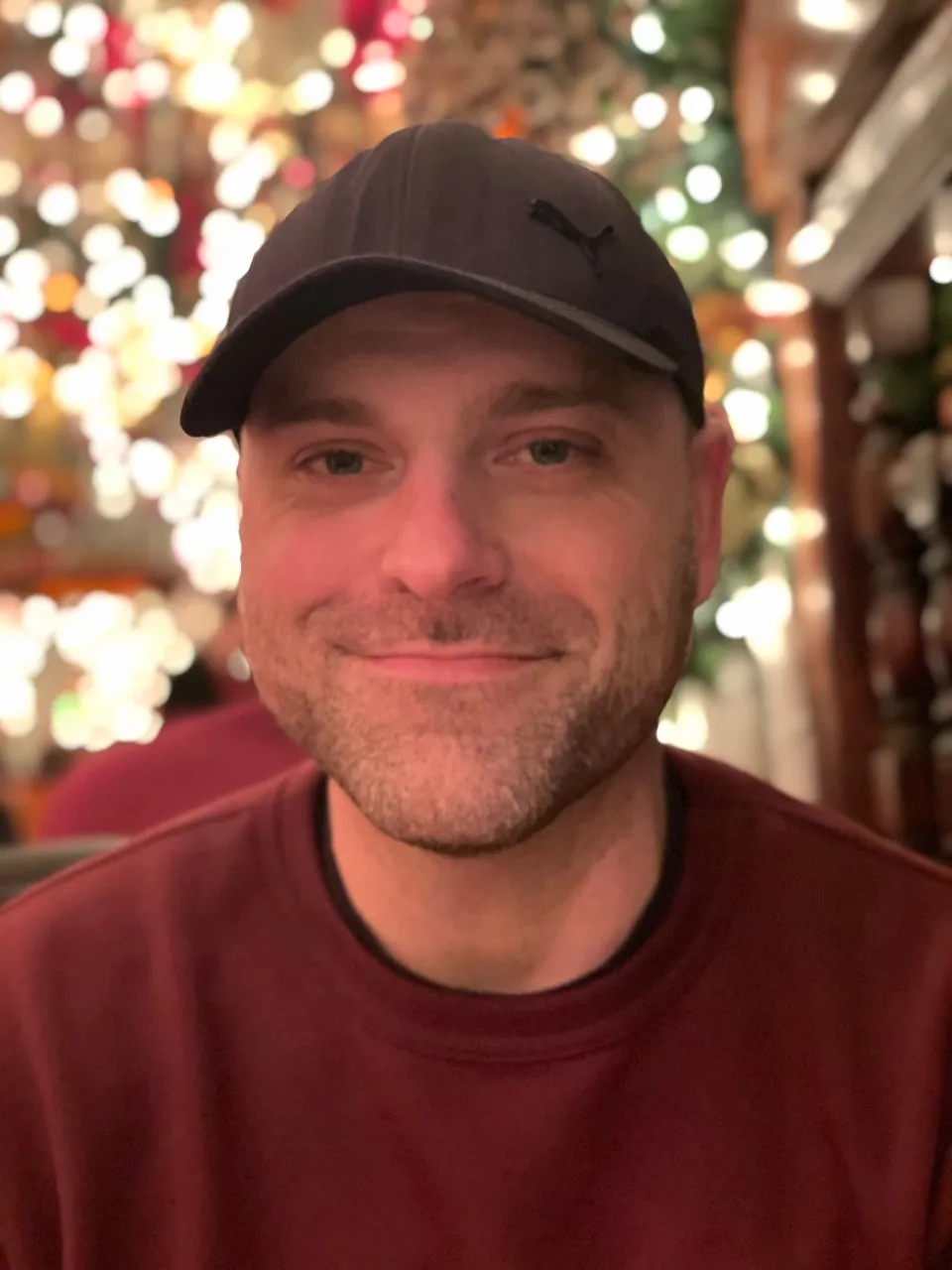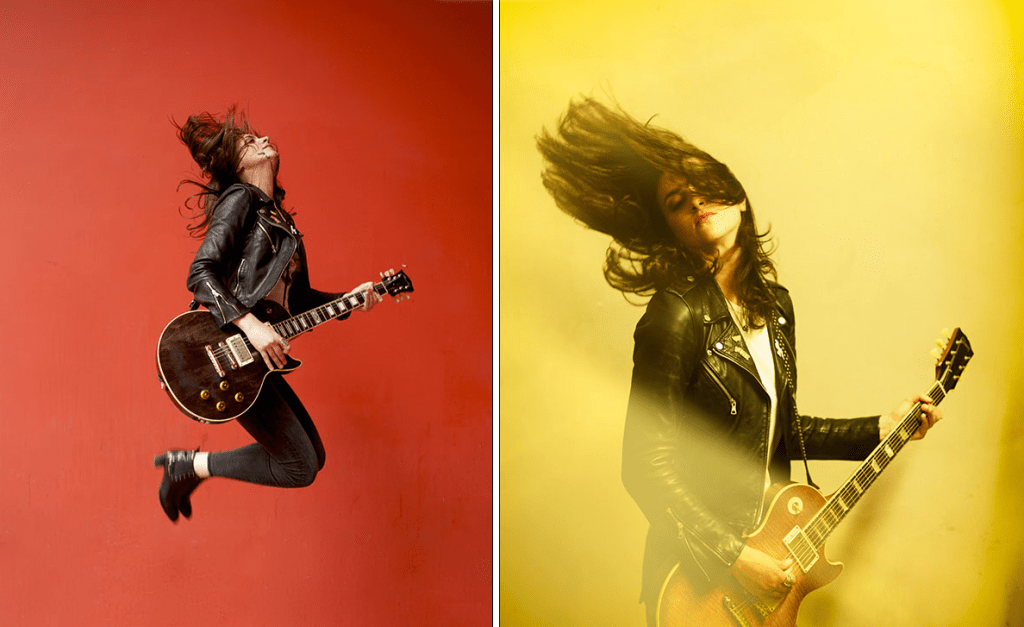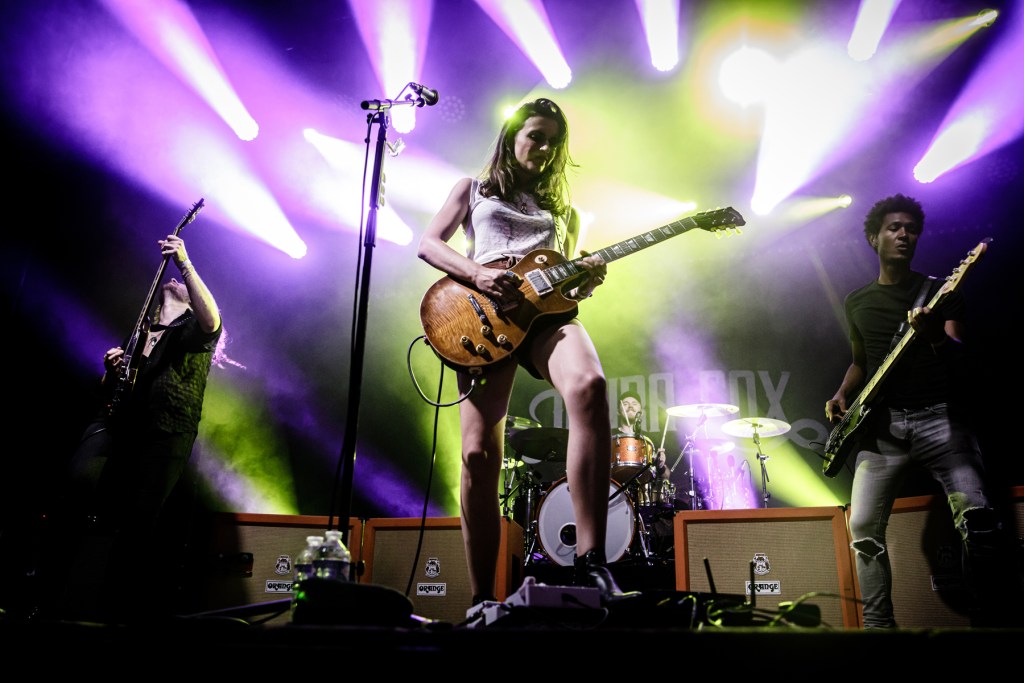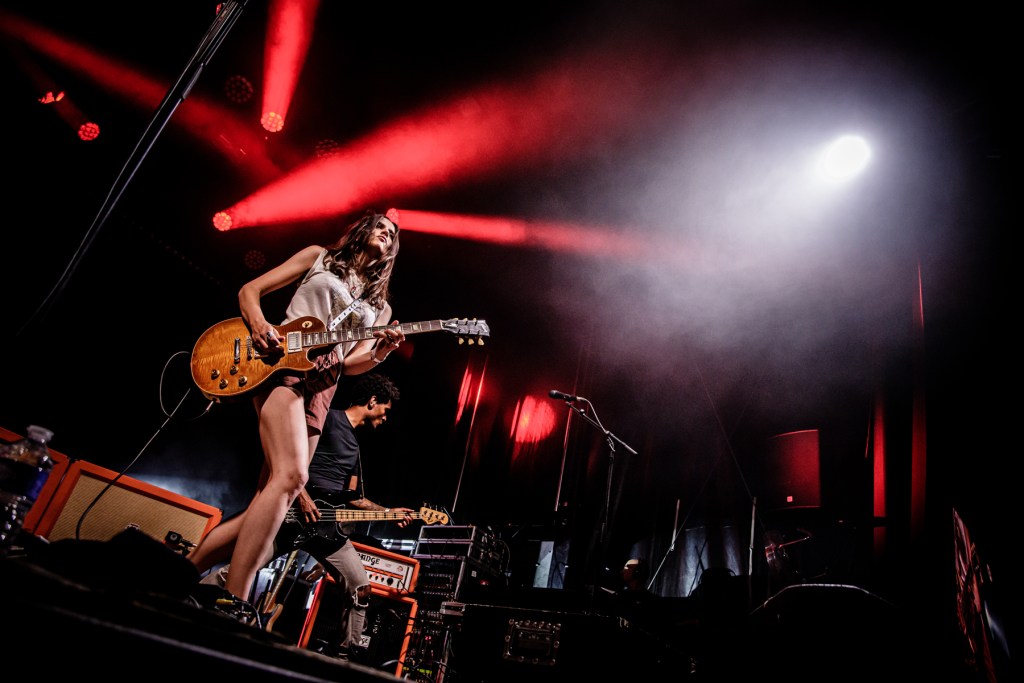
Header image credit: Luc Naville

By Andrew Daly
[email protected]
As one of the brightest lights in the rock and blues scene today, Les Paul toating amp-scorcher Laura Cox’s three-year absence from the recording scene has left fans wondering what might come next.
Wonder no more, as the onset of 2023 finds Cox on the recipe of the release of her third record, Head Above Water. By the looks of things, the early returns on Head Above Water – “So Long” and “One Big Mess” are not only a continuation of the young six-stringers exploits but a leap forward in songwriting and instrumentation.
Now three albums deep, Cox seems more comfortable than ever on these new tracks, with her sinful tone, signature refrain, and buttery guitar-driven goodness oozing over the album’s two initial singles. I, for one, am left salivating as I think on what’s to come, and if Head Above Water is any indication, what’s to come is seemingly quite imposing.
As anticipation for Head Above Water builds, Laura Cox checked in with VWMusic to recount the origins of her third record, her evolved approach to songwriting, the rise in women playing guitar, and her love for the tried and true single-cut classic, the Gibson Les Paul.
Give me the rundown on your upcoming new album.
My third album is called Head Above Water and will be released on January 20th. I took a bit of time for myself before being ready to write songs again. Three years between two albums is a long time, but it was worth it. I’m fully motivated now and almost ready to write the next one! I composed most of it on my own while I was away in Portugal during the pandemic, so the creation process was a bit different than for the previous albums. It worked really well this way, and I’m proud of how it turned out.
How has your sound progressed since your last effort, Burning Bright?
In terms of guitar tone and vocals, I went more for the “plug and play” and natural side of it. My tone is a raw crunch, and there was no need to look further because I was already really satisfied with this base. Vocally speaking, I just stopped yelling! I finally realized playing and singing rock isn’t a matter of how much distortion you’re using or how loud you’re screaming. It was a state of mind; I was freer, more confident, and more chill. This is rock ‘n’ roll to me.
What important lessons have you learned throughout your career, and how do you apply those when you’re recording?
I learned that, at some point, I had to be the boss and lead my own project. Being surrounded by a team of guys, most of the time older than me, it can be hard, as a woman, to be respected and to be able to set the rules. Now I know a rock band is not just about playing with friends because it’s also a job, and setting rules and boundaries are important. Once everything is clear, the recording process is a piece of cake!

Images courtesy of Getty Images/Wiki Commons
Break down your songwriting process and how it’s evolved as you’ve matured as an artist.
Everything always starts with a riff. I can’t remember a time when the vocals came first. I’ll always consider myself more of a guitarist than a singer, anyway. Once I have the main riff and a rough guitar structure, I try to think of a theme and try to come up with a chorus first.
The first album, Hard Blues Shot, was kind of a mix of all my influences. Now that I’m more experienced, the albums are getting more personal and more original. I’m also more open to different genres of music now, and I think that can only improve and widen my inspiration.
How is that approach best reflected on Head Above Water?
I felt freer in a lot of ways. Put more work into creating a nice atmosphere with the vocals, mostly by layering tracks and more backing vocals. I also used more instruments. I’ve always been attached to bluegrass instruments, and I felt like showing this side of me more by playing banjo and lap steel. This gives the listeners a different angle and twists a bit of the traditional rock songs.
You’re known for your use of Gibson Les Paul guitars. What do you love most about them, and how do they affect your sound?
What drew me to Les Pauls was their beautiful burst tops and their neck tones. I still love this aspect, but I fell in love with Les Paul Juniors more recently. I love their simple looks, one pickup, two knobs; you’re not afraid to play it hard on stage, spill beer on it, etc. It’s a real rock n’ roll machine. Plus, they’re lighter than traditional Les Paul guitars, which is not a bad thing!

Image credit: Luc Naville
What other gear, effects, pedals, and amps are you using?
I’m not a big fan of effects; I like it simple. My go-to pedals are the J. Rockett Archer and the SoloDallas Storm. I like how they thicken my tone and give me just enough sustain and push for my solos. On stage, I’m mostly using my Gibson Les Paul Classic Plus and my Les Paul Junior. I used the same gear in the studio, as I feel really comfortable with my gear. In addition to my Orange Amps, I played on a Marshall JMP 2204 combo for the latest recording. I like this combination.
To what do you attribute the rise in women picking up the guitar? Is the playing field more equal?
I think the playing field is better now, but still far from equal. Some women are getting more exposure, and I think it’s really pushing and motivating young girls to start playing. That’s great. Some girls need female role models to make them realize that it’s normal and possible to play the electric guitar. If I can contribute to this in any way, I’m really happy because we need more women on stage and backstage.
What’s your secret to reaching audiences in the live setting?
Having fun! If people can see you love what you’re doing, they will feel this and enjoy it too. I also like working on different arrangements for our shows to stay away from the routine. We want to surprise the audience and also add a bit of freshness to the shows. I wasn’t born for the stage. I think I’m more introverted, so I had to work on this to feel comfortable playing in front of people, entertaining them, etc. That’s a challenge every time, but it’s making me evolve, and it feels good.
What’s next for you in all lanes?
I’ll be going on tour to share these new tracks with the crowd! I know we’ll be really busy from March to the end of the summer, and I can’t wait. I also feel inspired to start writing my fourth album, and I know we won’t wait another three years to release the next one.

Image credit: Luc Naville
– Andrew Daly (@ajdwriter88) is the Editor-in-Chief of www.vwmusicrocks.com and may be reached at [email protected]
